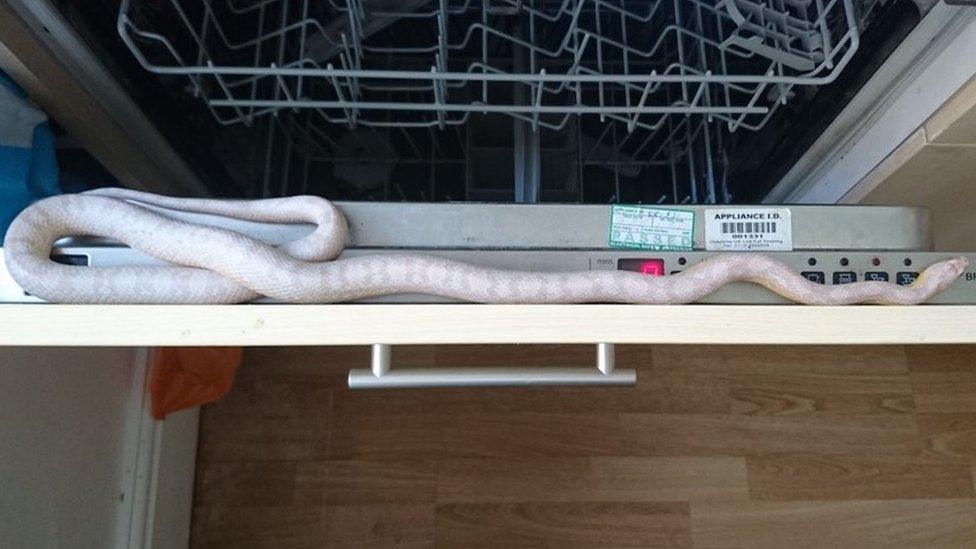Snake in a drain in safe hands after shocking gardener, RSPCA says
- Published
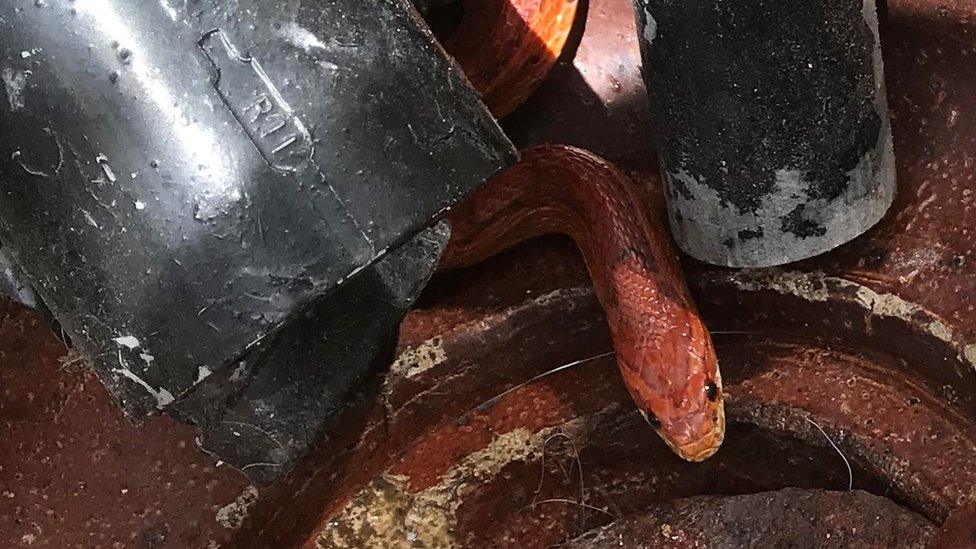
The woman who found the snake "didn't know whether it was venomous, so she rang the police", the RSPCA says
A "quite aggressive" corn snake which shocked a woman when it slithered across a drainpipe is now "in safe hands", an RSPCA inspector has said.
Anthony Joynes said the snake surprised the woman as she was "pottering around" in her Birkenhead garden on Saturday.
He said the aggression displayed "was just a bit of fear" and the reptile "was quite a nice snake really".
Urging its owner to get in touch, he said it had been well cared for and had probably escaped from a nearby home.
The charity said the inspector, who has a vivarium at home, offered the "roaming reptile a bed for the night" after being called to the woman's property on Bidston Avenue.
A spokesman said corn snakes were among the North American species of rat snakes that kill their prey by constriction, but were not venomous or dangerous to humans.
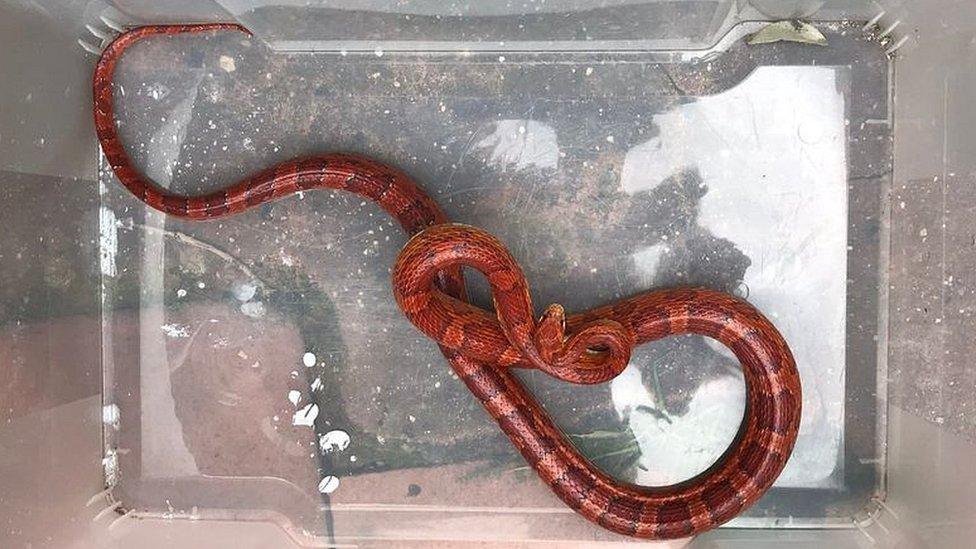
Mr Joynes said the snake "was quite a size and that must have been a shock"
However, Mr Joynes said the woman who found it "didn't know whether it was venomous, so she rang the police, who contacted me".
"When I went to pick him up, he was actually quite aggressive," he said.
"He was quite a size and that must have been a shock for the woman.
"He was quite a nice snake really and I think the aggression he displayed was just a bit of fear."
He said the snake had "a rib fracture and it does look like this snake has been run over", but there were "no signs of neglect and he could have escaped his enclosure".
He added that the charity was concerned that the recent increases in energy bills meant people may be "switching off their vivariums", but people should not make "rash decisions" as they were "not that expensive to run".
The charity spokesman said many people were "unaware" of the commitment needed to keep an exotic animal, as they needed a "carefully-controlled environment" and "can live for decades".

Why not follow BBC North West on Facebook, external, Twitter, external and Instagram, external? You can also send story ideas to northwest.newsonline@bbc.co.uk, external
Related topics
- Published14 October 2021
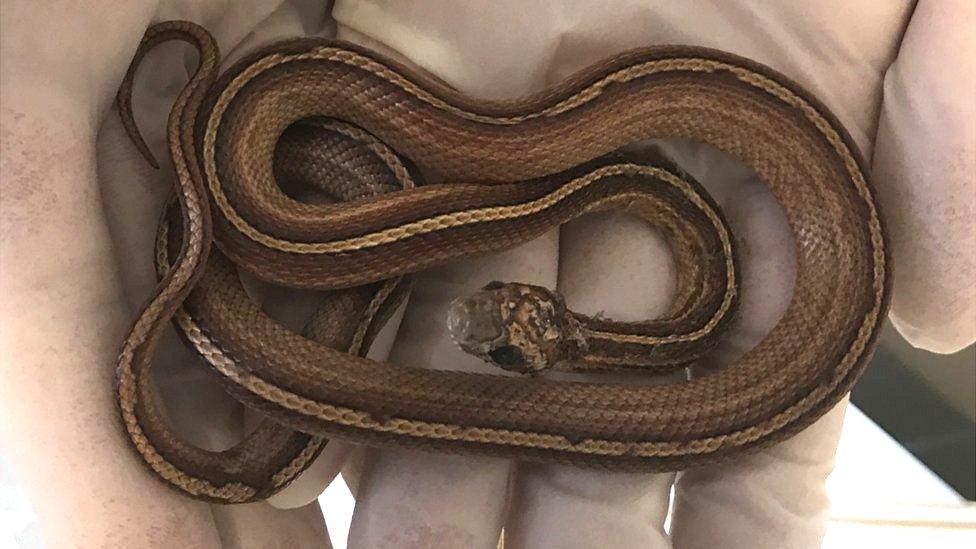
- Published25 August 2020
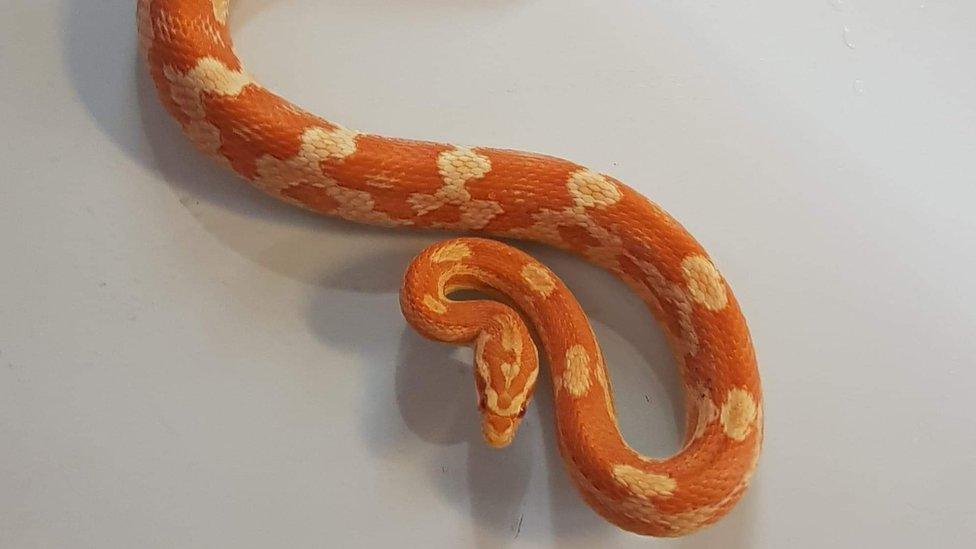
- Published28 June 2019
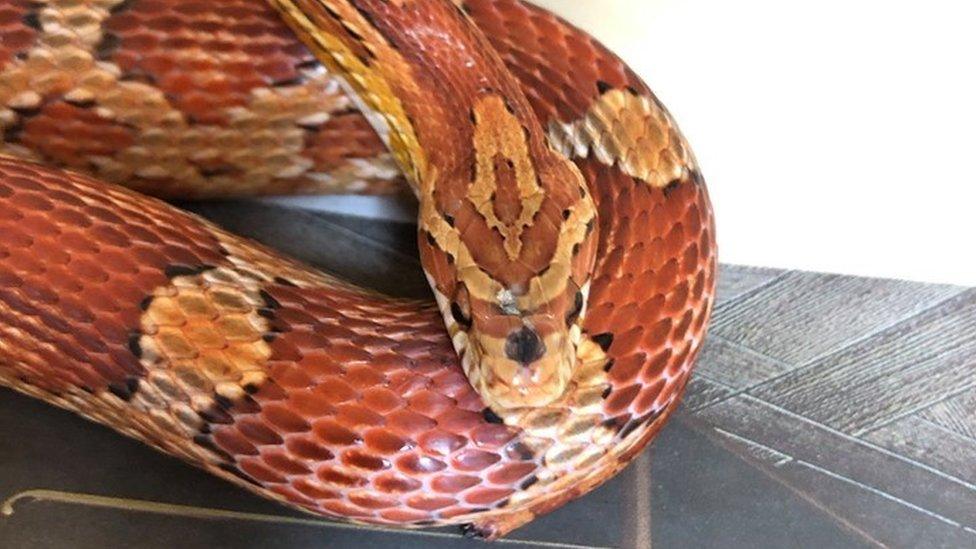
- Published22 May 2018
